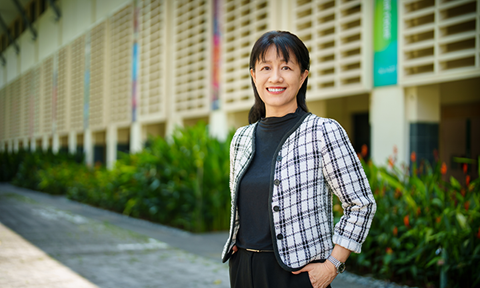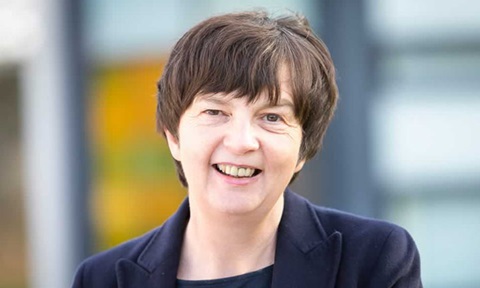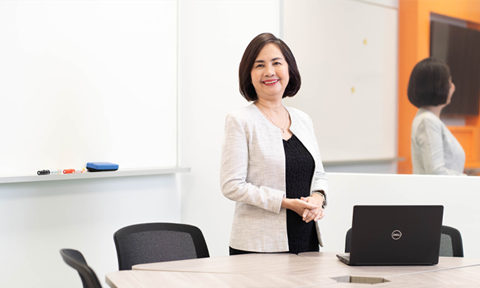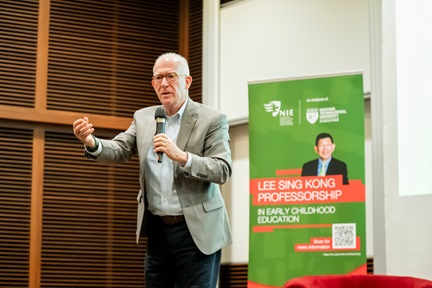Singapore’s Private Tutoring Boom Reveals the Hidden Cost of Success
Three minutes was all Leshane Lim gave herself to scarf down food as she rushed between private tutoring classes. In the midst of school-entry examinations, the then 16-year-old Singaporean was cramming feverishly, scheduling three after-hours sessions every day, back to back. With her options for future schools and ultimately her career path on the line, the stakes seemed high.
“I used to think it was the end of the world,” said Lim, now 18. “I put myself in that position because I wanted to do well.”
It’s a common story in Singapore, where parents spent S$1.8 billion ($1.4 billion) in 2023 on private tutoring, up almost 30% from 2018, according to government data. That investment — among the highest per capita spends in the world — is paying off, with Singaporean schoolchildren scoring significantly higher on average in mathematics, reading and science than all other countries in a global benchmarking study.
But there are concerns that Singapore’s competitive education system and the high premium society places on academic success are taking a toll on young people’s emotional health. Studies show that Singaporean students are more likely than their OECD peers to feel very anxious before a test and express a greater fear of failure.
Common complaints among students who attend many tuition classes are chronic stress and a lack of sleep, according to Rebecca Chan, a lecturer at Singapore’s National Institute of Education who specializes in psychology and child development.
“Children need time for themselves, not to be pushed along to classes one after another,” she said.
The private tutoring industry, which first gained prominence in East Asia, is growing rapidly across the world. It will be worth $171 billion by the end of 2028, up from $111 billion in 2023, according to Unesco. The United Nations body is concerned that so-called shadow education exacerbates social inequalities because wealthier households have greater access to private tutors.
In North America, parents are expected to spend $44.9 billion on private tutoring this year, swelling to $61.1 billion by 2030, according to Global Industry Analysts. The industry continues to grow in China and South Korea, despite government efforts to rein it in.
Singapore’s Ministry of Education has sought to ease the pressure on students, including by reducing the number of exams in government schools. Education Minister Chan Chun Sing told local media in February that the government is working on a code of conduct to deter centers from preying on parents. It’s not uncommon for center staff to stand outside school gates handing out flyers and cautioning students not to fall behind their peers. The ministry said it’s “currently studying possible options to discourage undesirable advertising practices in the tuition industry.”
A factor driving many parents and children is kiasu — a slang term taken from the Chinese dialect Hokkien that translates as a fear of losing out, and reflects the city-state’s competitive culture.
That’s something Lock Chee Wee, a partner at accounting firm RSM Singapore, has experienced in his own family. When the oldest of his two children, who is now at university, asked for a private tutor during secondary school, he told her she didn’t need one as she was getting mostly B grades. But she insisted, saying all her classmates were achieving As. “The competition now is not about getting the pass,” he said. “It’s getting to be super elite.”
Social pressures are driving demand even in countries known for a more “relaxed” approach to education, such as Denmark, Sweden and Finland, according to Mark Bray, Unesco chair professor in comparative education at the University of Hong Kong. Singapore, which prizes competition “and has always been conscious that it’s a small society and country” is even more susceptible, he said.
Bray said it was a “healthier sign” that Singapore’s education ministry has acknowledged issues around private tutoring, after long taking a laissez-faire approach. He said the industry needs more regulation, or self-regulation. At the moment, it’s both a lucrative business and relatively easy to set up in Singapore.
Daniel Tay, a former teacher who established his own tuition center in October 2024, already earns more than he did working in public schools. He has more than 50 students, and charges S$400 a month for four lessons with small classes. He also has a weekly TikTok livestream where he goes through exam questions for free, and has 15,000 followers on the platform. Tay said there should be some form of regulation to verify individual tutors’ qualifications. “The barrier to entry is “almost non-existent,” he said.
The industry ranges from large centers that teach classes of varying sizes (online and in person), to individual tutors who make home visits. Some “premium” tutors who graduated from top universities charge more than S$200 per hour, tuition agency listings show.
Private tuition centers must register with the education ministry, and some 881 private schools were registered as of April 2023. But the ministry makes clear on its website that this “does not in any way represent an endorsement or accreditation of the quality of the courses.” And there is no registration requirement for freelance tutors who work independently.
Algene Tan, who left a top law firm to set up the Think Teach Academy with an ex-UBS banker in 2017, said the business is growing 10-20% a year in Singapore, where it has four locations. The firm also has two centers in Shanghai and an online presence in Malaysia and Australia. A lot of his business is driven by word of mouth, particularly after rounds of key exams.
“Every time a student doesn’t do well, they start to get jittery,” he said. When asked about the government’s effort to curb harmful advertising, Tan said his center had no need for such tactics as its track record was proven.
Anthony Fok, who began tutoring economics about two decades ago when he was still at university, says the average market rate has doubled since then to the equivalent of about S$75 an hour. He earns about S$800,000 a year teaching group sessions.
Fok said tutors play a valuable role in preparing students for exams and can give more detailed feedback than school teachers. He spends S$7,000 a month on tutoring for his own 12-year-old son, who later this year will take the Primary School Leaving Examination that determines which secondary school he can attend. Fok said he’s concerned, though, at how many people are entering the industry and wants the government to introduce accreditation and require tutors to log professional training hours.
“It’s a free-for-all,” he said. “Everybody knows it’s good money.”
Meanwhile Lim, who’s received private tutoring since she was in kindergarten, remembers the stress of schoolwork, extracurricular activities and tutoring, which left her little time for a social life.
“My mom said ‘if you don’t have tuition you will fail and you should be grateful I’m doing this for you, a lot of people don’t have the money,’” Lim said. She’s now studying information technology and hopes to become a web designer or work in cybersecurity. But after a lifetime of tutoring, she struggles with time management and the discipline for self-study.
© 2025 Bloomberg L.P. All rights reserved.
Read the original article here.


.tmb-listing.jpg?Culture=en&sfvrsn=41a4c4ea_1)


